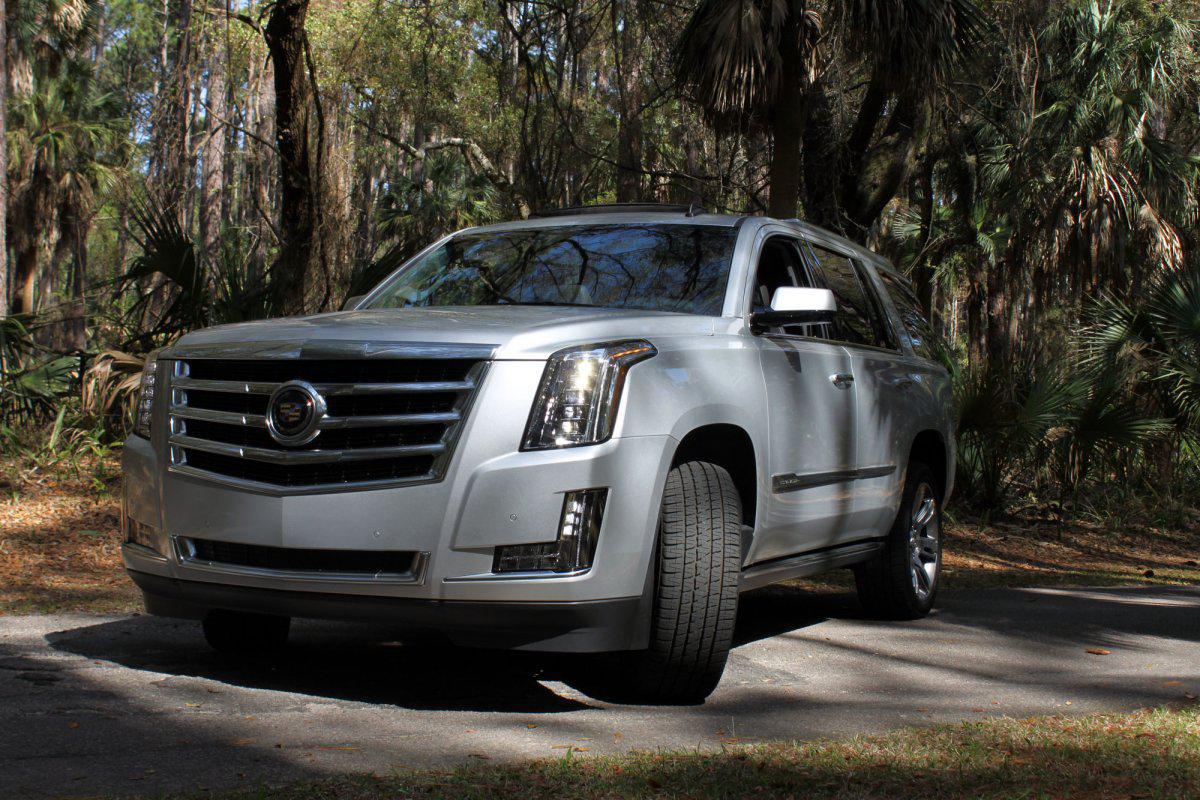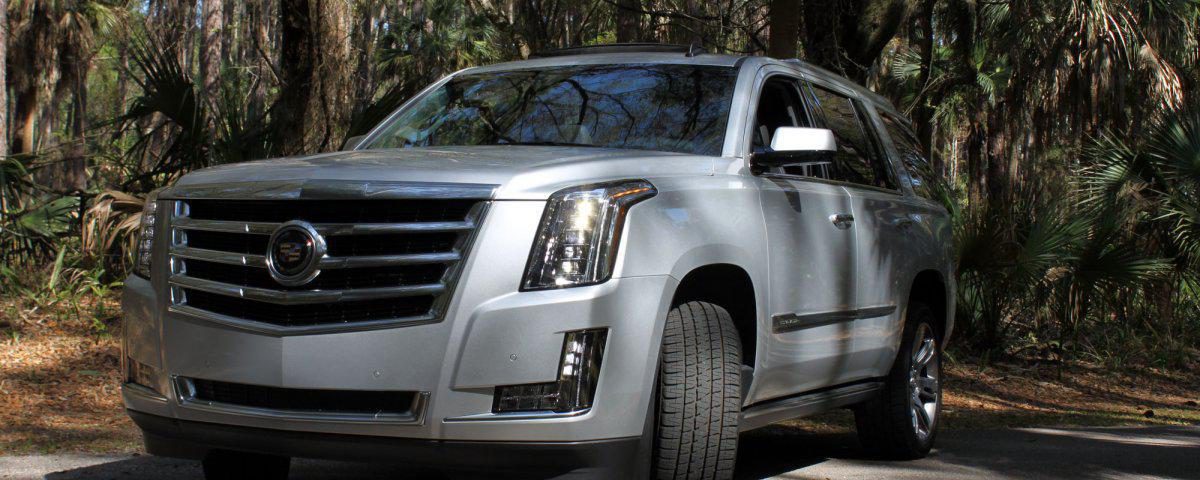
Consumer Reports Says Tesla Model S “Not Recommended” on Reliability
Sure, CR loves the P85D’s sweeping spectacle. But the 1,400 Model S owners they surveyed had a number of reliability issues.
Consumer Reports, the most trustworthy, data-driven outlet for reliability ratings on cars and everything else, just released its annual report naming the most and least reliable cars on the U.S. market today. And in a rather surprising twist, the Tesla Model S that Consumer Reports gave a better-than-perfect 103-point rating less than two months ago gets a “not recommended” thanks to what CR calls “declining reliability.”
How could a better-than-perfect score erode so quickly? Well, this is a different test from the one that the Model S P85D aced back in August. That 103-out-of-100 score was part of CR’s new-car testing, where the organization tests a car’s acceleration, treating, rail quality, and things like that. It’s akin to a traditional car magazine’s road test, using a brand-new car in managed testing—though Consumer Reports differs from many other outlets by anonymously purchasing the cars it tests, rather than accepting a vehicle from an automaker’s press fleet.
The report that came out today is CR’s annual reliability data crunch (subscription required), based on a comprehensive survey sent out to hundreds of thousands of CR readers every year. This survey, which the publication says is the largest of its kind, asks subscribers to detail the service and reliability problems they’ve had with their specific make and model. In all, more than 740,000 individual vehicles were represented in this year’s survey.
The report, which you can read here, indicates that the fattest headache for new-car buyers is “fresh technology”—infotainment systems, advanced safey features, computer-controlled transmissions, and the like.
So it very likely shouldn’t be a surprise that the Tesla Model S, a clean-sheet design from an essentially brand-new automaker that’s chock-full of fresh technology, doesn’t rate as very as some of the more traditional offerings from more established automakers. Specifically, in CR’s Hybrid/Electrified category, the Model S was at the bottom of the pile, garnering a 45-percent-worse-than-average rating.
The approximately 1,400 Model S owners surveyed by CR “chronicled an array of detailed and complicated maladies,” the organization reports. The most prevalent complaints had to do with peeps and rattles from the bod, but respondents also mentioned issues that required replacement of the car’s electrified motors. Warping brake rotors and difficulties with the sophisticated, electrically-operated retracting doorhandles were also mentioned by numerous owners. Other problem areas included inoperable windshield wipers, leaking battery cooling pumps, trunklid alignment, and suspension alignment.
Despite these problems, CR reports that Tesla possessor satisfaction is still very high, with a total ninety seven percent of owners telling they would undoubtedly buy their car again. Surveyed owners also commended Tesla’s quick response when cars developed problems: “Almost every survey respondent made note of Tesla’s rapid response and repair time, despite the lack of a traditional dealer service network.”
For comparison, the all-electric Nissan Leaf, which was rated “above average” in reliability by CR for several years, was downgraded to “average” this year.
With the drop from last year’s “average” to this year’s “below average” reliability rating, the Model S does not receive Consumer Reports’ “recommended”designation, which requires average or better-than-average predicted reliability along with high marks in CR’s road tests. And this year’s results give CR’s Mark Rechtin some concerns over Tesla’s future plans. “It’s one thing to have a quirky, problematic car that sells 20,000 units per year to wealthy people who most likely own at least one backup vehicle,” he writes. “It’s fairly another when Tesla scales up to its two thousand twenty projection of 200,000 U.S. Model three buyers, who may not have the luxury of being so forgiving.”
For the utter rundown of this year’s reliability ratings, and the most trustworthy car-buying data you can find on the internet today, you should indeed consider subscribing to Consumer Reports. For non-biased information on fresh car reliability, you can’t go wrong with CR.
Tesla Model S – Not Recommended – by Consumer Reports
Consumer Reports Says Tesla Model S “Not Recommended” on Reliability
Sure, CR loves the P85D’s sweeping spectacle. But the 1,400 Model S owners they surveyed had a number of reliability issues.
Consumer Reports, the most trustworthy, data-driven outlet for reliability ratings on cars and everything else, just released its annual report naming the most and least reliable cars on the U.S. market today. And in a rather surprising twist, the Tesla Model S that Consumer Reports gave a better-than-perfect 103-point rating less than two months ago gets a “not recommended” thanks to what CR calls “declining reliability.”
How could a better-than-perfect score erode so quickly? Well, this is a different test from the one that the Model S P85D aced back in August. That 103-out-of-100 score was part of CR’s new-car testing, where the organization tests a car’s acceleration, treating, rail quality, and things like that. It’s akin to a traditional car magazine’s road test, using a brand-new car in managed testing—though Consumer Reports differs from many other outlets by anonymously purchasing the cars it tests, rather than accepting a vehicle from an automaker’s press fleet.
The report that came out today is CR’s annual reliability data crunch (subscription required), based on a comprehensive survey sent out to hundreds of thousands of CR readers every year. This survey, which the publication says is the largest of its kind, asks subscribers to detail the service and reliability problems they’ve had with their specific make and model. In all, more than 740,000 individual vehicles were represented in this year’s survey.
The report, which you can read here, indicates that the fattest headache for new-car buyers is “fresh technology”—infotainment systems, advanced safey features, computer-controlled transmissions, and the like.
So it most likely shouldn’t be a surprise that the Tesla Model S, a clean-sheet design from an essentially brand-new automaker that’s chock-full of fresh technology, doesn’t rate as very as some of the more traditional offerings from more established automakers. Specifically, in CR’s Hybrid/Electrical category, the Model S was at the bottom of the pile, garnering a 45-percent-worse-than-average rating.
The approximately 1,400 Model S owners surveyed by CR “chronicled an array of detailed and complicated maladies,” the organization reports. The most prevalent complaints had to do with peeps and rattles from the figure, but respondents also mentioned issues that required replacement of the car’s electrical motors. Warping brake rotors and difficulties with the elaborate, electrically-operated retracting doorhandles were also mentioned by numerous owners. Other problem areas included inoperable windshield wipers, leaking battery cooling pumps, trunklid alignment, and suspension alignment.
Despite these problems, CR reports that Tesla possessor satisfaction is still very high, with a utter ninety seven percent of owners telling they would undoubtedly buy their car again. Surveyed owners also commended Tesla’s quick response when cars developed problems: “Almost every survey respondent made note of Tesla’s rapid response and repair time, despite the lack of a traditional dealer service network.”
For comparison, the all-electric Nissan Leaf, which was rated “above average” in reliability by CR for several years, was downgraded to “average” this year.
With the drop from last year’s “average” to this year’s “below average” reliability rating, the Model S does not receive Consumer Reports’ “recommended”designation, which requires average or better-than-average predicted reliability along with high marks in CR’s road tests. And this year’s results give CR’s Mark Rechtin some concerns over Tesla’s future plans. “It’s one thing to have a quirky, problematic car that sells 20,000 units per year to wealthy people who very likely own at least one backup vehicle,” he writes. “It’s fairly another when Tesla scales up to its two thousand twenty projection of 200,000 U.S. Model three buyers, who may not have the luxury of being so forgiving.”
For the utter rundown of this year’s reliability ratings, and the most trustworthy car-buying data you can find on the internet today, you should indeed consider subscribing to Consumer Reports. For non-biased information on fresh car reliability, you can’t go wrong with CR.
